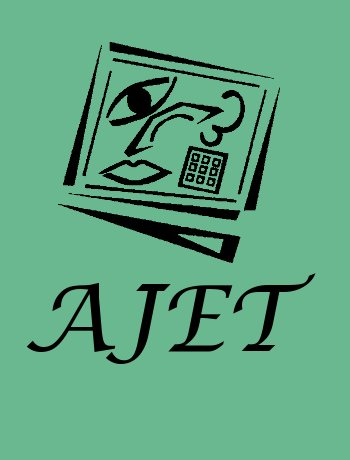
ICT-supported, scenario-based learning in preclinical veterinary science education: Quantifying learning outcomes and facilitating the novice-expert transition
ARTICLE
Jennifer Seddon, Brenda McDonald, Adele Schmidt
Australasian Journal of Educational Technology Volume 28, Number 2, ISSN 0814-673X Publisher: Australasian Society for Computers in Learning in Tertiary Education
Abstract
Problem and/or scenario-based learning is often deployed in preclinical education and training as a means of: (a) developing students' capacity to respond to authentic, real-world problems; (b) facilitating integration of knowledge across subject areas, and; (c) increasing motivation for learning. Six information and communication technology (ICT) supported, scenario-based learning (SBL) problems using case studies that integrated information across subject areas were implemented in a second-year genetics course for undergraduate veterinary science students and linked to educational outcomes. On a post-implementation questionnaire, students appreciated the use of authentic scenarios but login records indicated variable engagement among students. Comparison of learning outcomes from SBL-supported and non-SBL-supported content (within and across student cohorts) indicated that exposure to SBL generated quantifiable improvements in learning in both high and low ability students. Despite this, students did not perceive that the SBL activities improved their learning. Thus, ICT-supported SBL have the potential to reinforce connectivity of content across a range of pre-clinical courses, but to facilitate a genuine novice to expert transition may require consideration of students' perceptions of scenario relevance, their confidence, and how students of differing learning styles engage with such activities.
Citation
Seddon, J., McDonald, B., Schmidt, A. & Schmidt, A. (2012). ICT-supported, scenario-based learning in preclinical veterinary science education: Quantifying learning outcomes and facilitating the novice-expert transition. Australasian Journal of Educational Technology, 28(2),. Australasian Society for Computers in Learning in Tertiary Education. Retrieved August 11, 2024 from https://www.learntechlib.org/p/43987/.
References
View References & Citations Map- Appleton, J.J. & Lawrenz, F. (2011). Student and teacher perspectives across mathematics and science classrooms: the importance of engaging contexts. School Science and Mathematics, 111, 143-155.
- Baker, C.M., McDaniel, A.M., Pesut, D.J. & Fisher, M.L. (2007). Learning skills profiles of Master's students in nursing administration: Assessing the impact of problem based learning. Nursing Education Perspectives, 28, 190-195. Http://www.highbeam.com/doc/1G1167508284.html
- Barak, M. & Shachar, A. (2008). Projects in technology education and fostering learning: The potential and its realization. Journal of Science Education and Technology, 17, 285-296.
- Barrow, L.H. (2006). A brief history of inquiry: From Dewey to standards. Journal of Science Seddon, McDonald and Schmidt 227
- Basu, S.J. (2008). Powerful learners and critical agents: The goals of five urban Caribbean youth in a conceptual physics classroom. Science Education, 92, 252-277.
- Chan, L.J. & Chan, K.C. (2007). Integrating inter-disciplinary experts for supporting problembased learning. Innovations in Education and Teaching International, 44(2), 211-224.
- Downes, T. (2002). Pre-service teaching training and teacher professional development in the use of ICTs in the teaching of mathematics and science in participating SEAMEO countries. Canberra: Australian Government, AEI-International Education Network. Http://www.seameo.org/vl/library/dlwelcome/projects/ictmath03/useofict.htm
- Endler, L.C. & Bond, T.G. (2008). Changing science outcomes: Cognitive acceleration in a US setting. Research in Science Education, 38, 149-166.
- Errey, R. & Wood, G. (2011). Lessons from a student engagement pilot study: Benefits for students and academics. Australian Universities' Review, 53(1), 21-34. [verified 23 Feb 2012; 8 MB] http://www.nteu.org.au/library/view/id/1298
- Foote, L.C. & Fitzpatrick, K.A. (2004). Introduction to biological investigations: A first-year experience in experimental design and scientific communication. Journal of College Science Teaching, 34(3), 35-40.
- Harlow, K.C. & Sportsman, S. (2007). An economic analysis of patient simulators for clinical training in nursing education. Nursing Economics, 25, 24-31.
- Jacobs, P.A. & Newstead, S.E. (2000). The nature and development of student motivation. British Journal of Educational Psychology, 70(2), 243-254.
- Kember, D. & Leung, D.Y.P. (2006). Characterising a teaching and learning environment conducive to making demands on students while not making their workload excessive. Studies in Higher Education, 31(2), 185-198.
- Kerka, S. (1998). Competency-based education and training. ERIC Myths and Realities. [viewed 3 Feb 2002 at http://ericacve.org/org/docs/cbetmr.htm ; verified 23 Feb 2012 at
- Könings, K.D., Brand-Gruwel, S. & Van Merrienboer, J.J.G. (2011). The match between students' lesson perceptions and preferences: Relations with student characteristics and the importance of motivation. Educational Research, 53(4), 439-457.
- McWilliam, E., Poronnik, P. & Taylor, P.G. (2008). Re-designing science pedagogy: Reversing the flight from science. Journal of Science Education and Technology, 17(3), 226-235.
- Minasian-Batmanian, L.C., Lingard, J. & Prosser, M. (2006). Variation in student reflections on their conceptions of and approaches to learning biochemistry in a first-year health sciences' service subject. International Journal of Science Education, 28(15), 1887-1904.
- Ringsted, C., Skaarup, A.M., Henriksen, A.H. & Davis, D. (2006). Person-task-context: A model for designing curriculum and in-training assessment in postgraduate education. Medical Teaching, 28(1), 70-76.
- Ruohoniemi, M. & Lindblom-Ylanne, S. (2009). Students' experiences concerning course workload and factors enhancing and impeding their learning-a useful resource for quality enhancement in teaching and curriculum planning. International Journal for Academic Seddon, McDonald and Schmidt 229
- Seddon, J.M. (2008). Vets and videos: Student learning from context-based assessment in a preclinical science course. Assessment and Evaluation in Higher Education, 33(5), 559-566.
- Skrok, K. (2007). Formation of pupils' attitudes and behaviours in chemistry teaching/ Formación de valores y actitudes de los estudiantes en educación química. Journal of Science Education, 8(2), 107-110. [abstract only] http://www.accefyn.org.co/rec/source/rec2819ref.htm
- Wilson, A.S., Goodall, J.E., Ambrosini, G., Carruthers, D.M., Chan, H., Ong, S.G., et al. (2006). Development of an interactive learning tool for teaching rheumatology-a simulated clinical case studies program. Rheumatology, 45(9), 1158-1161.
These references have been extracted automatically and may have some errors. Signed in users can suggest corrections to these mistakes.
Suggest Corrections to References